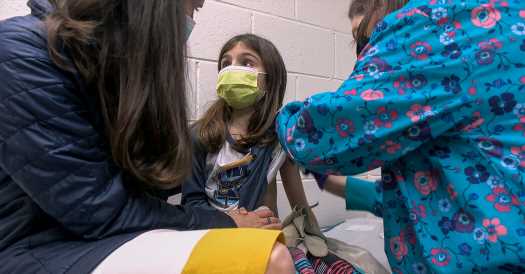Many of them are vaccinated, but when it comes to their kids, the unknowns give them pause.

By Jessica Grose

On May 4, Dr. Hina Talib, who goes by the handle @teenhealthdoc on Instagram, asked the parents among her 33,000 followers if they were hesitant to get the coronavirus vaccine for their 12- to 15-year-olds, and if so, why. Dr. Talib, who is a physician in the adolescent medicine division at Children’s Hospital at Montefiore in New York, was surprised to get 600 messages filled with questions and concerns.
More often than not, Dr. Talib said, the parents had already had the Covid-19 vaccine themselves, and would preface their message with: “I’m not an anti-vaxxer or an anti-masker. I’m just worried.” According to recently released polls, parents across the country share those concerns, with only about 30 percent saying they would get their children vaccinated right away. Parents of infants and preschoolers expressed more anxiety about the vaccine than parents of teenagers did.
In trials, there have been no serious safety concerns for children thus far, and Dr. Lee Savio Beers, the president of the American Academy of Pediatrics, heralded the recent emergency use approval of the Pfizer-BioNTech vaccine for children 12 to 15 as “a critically important step in bringing life-saving vaccines to children and adolescents.”
Despite evidence of the vaccine’s safety, several parents I spoke to over the past week were similarly hesitant about getting their children the shot. They were not skeptical about all vaccines; their children tended to be up-to-date with recommended well-child vaccines. Their overall fear was related to the newness of the vaccine, and unknown future outcomes.
As Kimberly Johnson, 38, the mom of elementary-school-age twins in Pound Ridge, N.Y., put it to me in a Facebook message: “I’m not anti-vax but this all seems just too fast for me. I don’t want my children to be responding to those lawyer ads you see on TV 25 years from now. You know the ones, ‘If you were under the age of 16 in the years 2021-2022 and received the Covid-19 vaccination you could be entitled to compensation …’”
Source: Read Full Article
